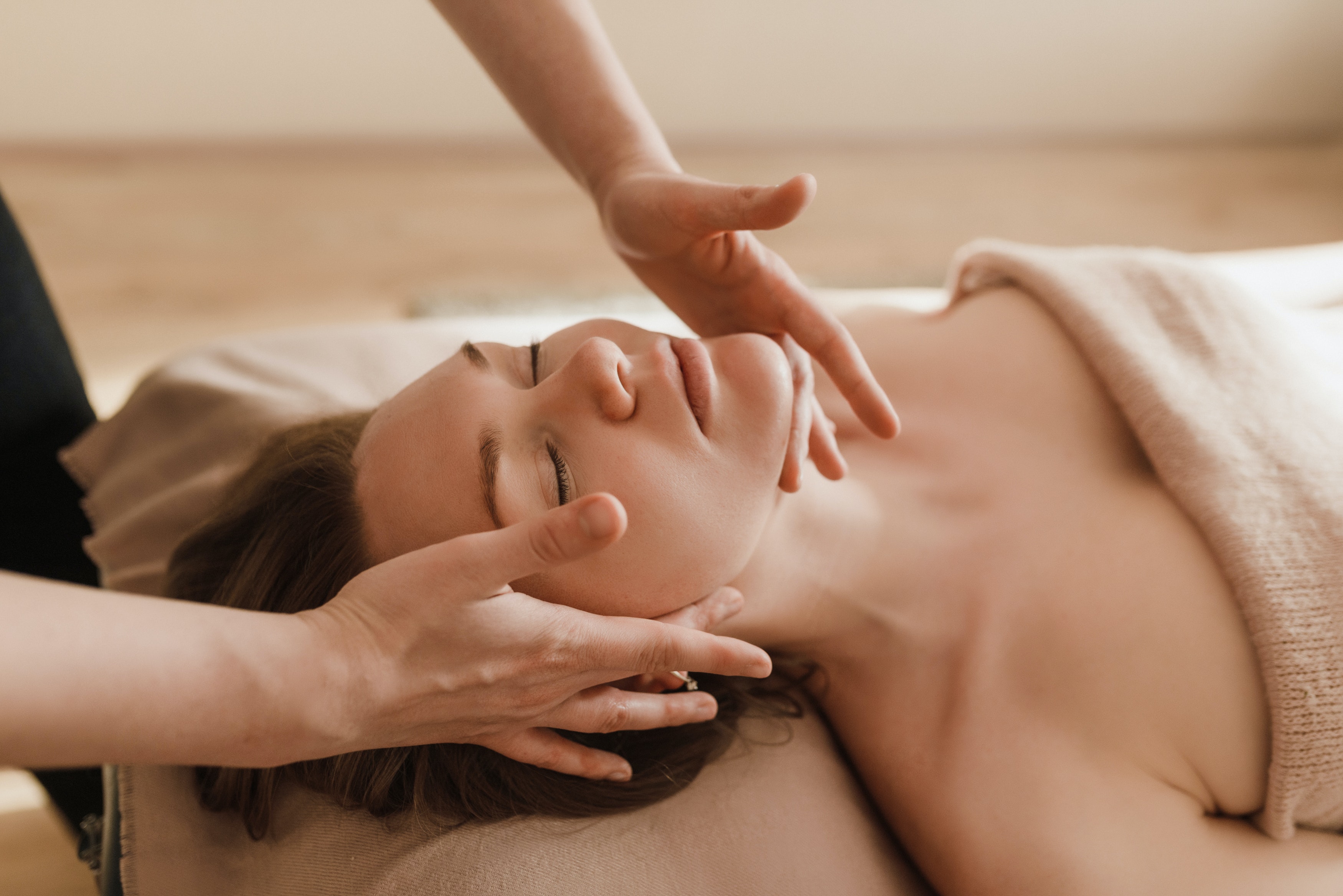Relax? Relax!
by Dr. Liz, March 24, 2022

According to the Oxford Dictionary, relaxation is “a state of being free from tension and anxiety.” But many people with ADHD have a hard time relaxing. This may be because they live in a constant state of stress, or because they have trouble making time for themselves. This post will discuss relaxation and provide you with some strategies and tips to help you make relaxation part of your daily routine.
Why Can’t I Relax?!
 People with ADHD have trouble dealing with “competing stimuli” or what is more commonly known as “sensory overload.” This can be both frustrating and stressful. Individuals with ADHD may have trouble slowing down and focusing, and sometimes they forget appointments, lose things, and miss deadlines. They get discouraged and angry with themselves and may feel guilt and shame about letting other people down. They tend to beat themselves up and focus on the negative, instead of all of their positive qualities and successes. Stress and tension win out!
People with ADHD have trouble dealing with “competing stimuli” or what is more commonly known as “sensory overload.” This can be both frustrating and stressful. Individuals with ADHD may have trouble slowing down and focusing, and sometimes they forget appointments, lose things, and miss deadlines. They get discouraged and angry with themselves and may feel guilt and shame about letting other people down. They tend to beat themselves up and focus on the negative, instead of all of their positive qualities and successes. Stress and tension win out!
Some people have trouble taking time for themselves. This “me” time as it is often called, must complete with many other things such as trying to complete tasks, dealing with school, athletics, work, family and friends, etc. The ADHD brain makes it hard to be “in the moment” because you may be distracted, restless, bored, or unfocused. It seems like your brain never relaxes, so neither can you. But you
can and should learn how to relax.
Take a Break!
Relaxation can improve your mood and reduce some ADHD symptoms. According to Beth Main, an ADHD coach and therapist, “Your body and mind deserve a series of small breaks throughout the course of the day. You also need longer periods of relaxation to keep stress at bay.” She calls learning to relax “a critical element of your ADHD treatment plan.” You need to find what helps you relax, and then take time to do it daily.
What Works For You?
For many people, relaxation takes practice. You may need to try several different things before you find what really works for you. Here are some suggestions:
Get Outside
 Several studies have described the benefits of exposure to nature, which include increased attention and effectiveness. Benefits were found not only for people outside backpacking or hiking, but also for people who tend gardens, look at photographs of natural settings, or even see nature out a window.
A 2004 study by Kuo & Taylor found that exposure to nature or green spaces was helpful in reducing ADHD symptoms. So, whether you like to hike, bike, jog, walk, or play ultimate frisbee, being outdoors in nature may help you relax. Getting out into sunlight is beneficial as well, helping your body make Vitamin D, which increases immunity, improves your mood, and is
especially good for anyone with depression.
Several studies have described the benefits of exposure to nature, which include increased attention and effectiveness. Benefits were found not only for people outside backpacking or hiking, but also for people who tend gardens, look at photographs of natural settings, or even see nature out a window.
A 2004 study by Kuo & Taylor found that exposure to nature or green spaces was helpful in reducing ADHD symptoms. So, whether you like to hike, bike, jog, walk, or play ultimate frisbee, being outdoors in nature may help you relax. Getting out into sunlight is beneficial as well, helping your body make Vitamin D, which increases immunity, improves your mood, and is
especially good for anyone with depression.
Stay Inside
Some people are more relaxed when doing things inside - like reading for fun, doing puzzles, watching movies, or playing video games. Maybe you love to cook and entertain friends. Perhaps you enjoy knitting, crochet, needlepoint, or sewing. Maybe DIY repairs or woodworking is your thing. How do you get creative? If you find it relaxing, then it works for you.
Pamper yourself
 Treat yourself to a massage or a mani/pedi. Try acupuncture or reiki. Give yourself a home facial or some DIY beauty treatments. If it calms you, makes you feel special, or beautiful, that’s relaxing.
Treat yourself to a massage or a mani/pedi. Try acupuncture or reiki. Give yourself a home facial or some DIY beauty treatments. If it calms you, makes you feel special, or beautiful, that’s relaxing.
Write it Out
Some people with ADHD find that journaling can have a calming, therapeutic effect. Whether you journal at the start or the end of a day, you can let go and put it all on the page. Jane D., a journalist and blogger with ADHD, says “Writing has a healing effect, like a nice massage. It is comforting, like a cup of tea or a warm fireplace on a chilly night. All you need is a notebook, a pen, or a laptop if you prefer, and the courage to open up your heart.”
Calm Your Brain
 Give your brain a break! Find a way to reduce all the external stimulation. Maybe your favorite soothing playlist and a pair of headphones is how you unwind. Or some noise-cancelling headphones and a good book. Meditation can be very helpful to quiet your brain. If you have never tried it before, you can explore many apps online and choose the one that seems to help and that speaks to you.
Give your brain a break! Find a way to reduce all the external stimulation. Maybe your favorite soothing playlist and a pair of headphones is how you unwind. Or some noise-cancelling headphones and a good book. Meditation can be very helpful to quiet your brain. If you have never tried it before, you can explore many apps online and choose the one that seems to help and that speaks to you.
Exercise
It sounds counter-intuitive, but some people find working out very relaxing. Moving can free up your mind and help you to be more creative and productive. It helps you burn off excess energy, so you feel less frustrated and stressed. One particular exercise, yoga, can be very beneficial for ADHD brains and bodies. Research suggests that practicing yoga can help reduce stress and anxiety, improve your mood, and give you an overall sense of well-being. Dr. Jeffrey Gersten says “Yoga and other mind-body exercises are fantastic for ADHD symptoms and stress. People with ADHD spend way too much time inside their heads. Yoga is a way of finding balance between the mind and the body.”
Get Some Sleep
 It’s hard to relax when you’re tired and cranky. According to the Sleep Foundation, your brain cannot function properly without enough sleep. Lack of sleep can “impair your ability to concentrate, think clearly, and process memories”. In his book “Keep Sharp: Build a Better Brain at Any Age” Dr. Sanjay Gupta says seven hours of sleep is the “bare minimum” needed to stay healthy and functioning. He suggests stopping caffeine after 2pm and stopping food three hours before you go to bed. He also believes in a sleep ritual, going to bed and waking up at the same time each day, “no matter what”.
Doing something calming for yourself before bedtime, like taking a warm, soothing bath, can really make a difference. And keeping your bedroom dark, quiet and free of electronics will also improve your chances of getting a better night’s rest.
It’s hard to relax when you’re tired and cranky. According to the Sleep Foundation, your brain cannot function properly without enough sleep. Lack of sleep can “impair your ability to concentrate, think clearly, and process memories”. In his book “Keep Sharp: Build a Better Brain at Any Age” Dr. Sanjay Gupta says seven hours of sleep is the “bare minimum” needed to stay healthy and functioning. He suggests stopping caffeine after 2pm and stopping food three hours before you go to bed. He also believes in a sleep ritual, going to bed and waking up at the same time each day, “no matter what”.
Doing something calming for yourself before bedtime, like taking a warm, soothing bath, can really make a difference. And keeping your bedroom dark, quiet and free of electronics will also improve your chances of getting a better night’s rest.
Breathe
Practicing deep breathing is a great way to relax. It requires you to concentrate and focus on your breath which helps clear your mind. It also releases endorphins which reduce pain and give you a sense of well-being. Just pause for a minute or two, close your eyes, and concentrate on breathing in and out. If you can, lie down and place your hand on your stomach and feel it rise and fall as you breathe in and then out. There are many different breathing techniques to try, including the 4-7-8 relaxing breath, alternate nostril breathing, or lion’s breath. Take some time to find the one that works best for you.
Just Do It
 It doesn’t matter how you relax, just that you do relax. Relaxation means different things to different people.
Whether you relax alone or with friends, indoors or outside, actively or passively, it’s important to find what works best for you and then do it every day. Relaxing reduces stress and tension. It helps you laugh, find joy, and stay positive.
It will help you feel better and be better. So find your chill . . . and relax!
It doesn’t matter how you relax, just that you do relax. Relaxation means different things to different people.
Whether you relax alone or with friends, indoors or outside, actively or passively, it’s important to find what works best for you and then do it every day. Relaxing reduces stress and tension. It helps you laugh, find joy, and stay positive.
It will help you feel better and be better. So find your chill . . . and relax!
Sources:
ADA Awareness Month. (2020, October 2). What are some ways to reduce stress with ADHD?
Retrieved from ADHDAwarenessMonth.org:
https://www.adhdawarenessmonth.org/reduce-stress-with-adhd/
Baily, E. (2020, June 22). ADHD Calming Strategies. Retrieved from GutIdentity: https://gutidentity.com/adhd-calming-strategies/
D., J. (2020, October 9). Writing My Way to a Happier Me. Retrieved from ADDitude Magazine: https://www.additudemag.com/benefits-of-journal-writing-for-adults-with-adhd/
Gupta, S. (220021). Keep Sharp: Build a Better Brain at Any Age. New York: Simon & Schuster.
Iliades, C. (2011, November 11). 7 ADHD Stress-Reduction Techniques. Retrieved from Every Day Health: https://www.everydayhealth.com/adhd-pictures/adhd-stress-reduction-techniques.aspx#:~:text=%22Yoga%20and%20other%20mind%2Dbody,the%20mind%20and%20the%20body.%22
Kuo, F. E., & Taylor, A. F. (2011). A Potential Natural Treatment for Attention-Deficit/Hyperactivity Disorder: Evidence From a National Study. American Journal of Public Health (AJPH).
Retrieved from
https://ajph.aphapublications.org/doi/full/10.2105/AJPH.94.9.1580
Main, B. (2022, March 10). Relax! It’s Part of Your Treatment Plan. Retrieved from ADDitude Magazine: https://www.additudemag.com/treating-adult-adhd-relaxation/
Moryoussef, K. (2021, July 8). 9 Calming Strategies for a Racing, Restless Mind. Retrieved from ADDitude Magazine: https://www.additudemag.com/how-to-relax-your-mind-adhd-overthinking/
Pacheceo, D. (2022, March 11). Why Do We Need Sleep? Retrieved from Sleep Foundation: https://www.sleepfoundation.org/how-sleep-works/why-do-we-need-sleep#:~:text=Sleep%20is%20an%20essential%20function,the%20brain%20cannot%20function%20properly.
Ratey, N. (2021, August 24). Keep Calm and Breathe Om: 7 ADHD Relaxation Techniques.
Retrieved from ADDitude Magazine:
https://www.additudemag.com/adhd-relaxation-techniques-to-reduce-stress/
Smith, J. (2021, June 29). ADHD Relaxation Techniques to Help Calm You on Frantic Days. Retrieved from FastBraiin: https://www.fastbraiin.com/blogs/blog/adhd-relaxation-techniques
Images:
Stressed Man: Photo by Nathan Cowley from Pexels
Tree Trunk: Photo by mali maeder from Pexels
Facial Massage: Photo by Arina Krasnikova from Pexels
Yoga: Photo by Elina Fairytale from Pexels
Man Sleeping: Photo by Andrea Piacquadio from Pexels
Hammock: Photo by Mateusz Dach from Pexels
Specific questions and topic suggestions can be emailed to questions@ADHDinCollege.com.